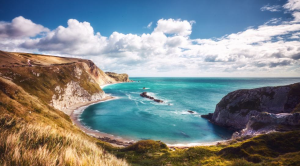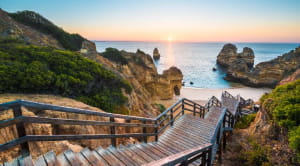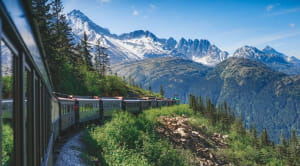
Its social conscience and visionary outlook mean there’s more to Brittany Ferries than comfortable, safe and sustainable crossings
Brittany Ferries continues to forge ahead, with a new generation of smoother, quieter and more sustainable vessels in its fleet.
Fifty years ago, a ship departed from Brittany loaded with artichokes, onions, cauliflowers – and hope. It was January 1973, and France’s north-western corner had spent decades in economic despair, its farming communities impoverished by plummeting prices and poor infrastructure. In a coordinated effort to reverse their fortunes, Breton farmers chartered the Kerisnel, an old Israeli tank carrier, to carry their produce to British markets – with their own cooperative in charge. The voyage was a success, but surely even the most ambitious farmer couldn’t have anticipated the thriving, essential operation that it would become: Brittany Ferries.
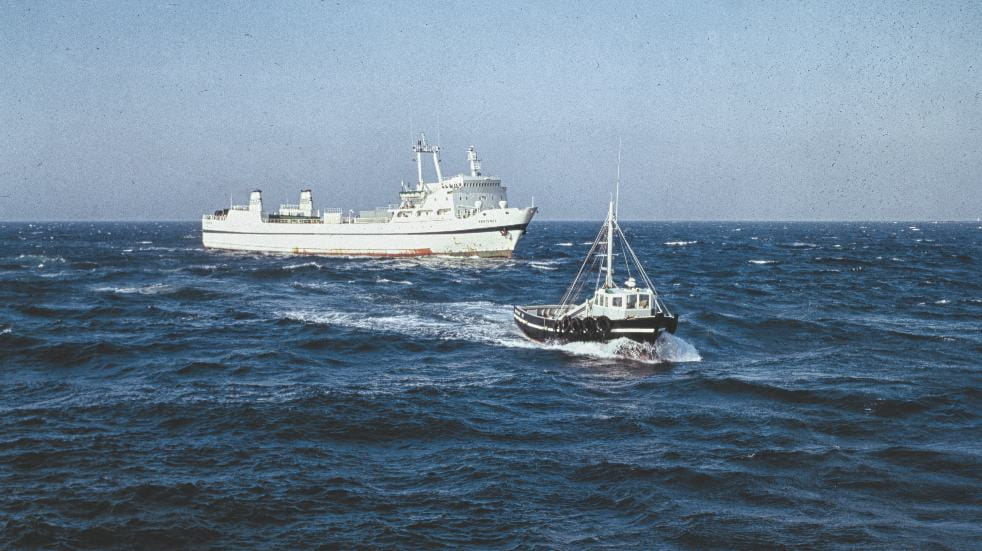
Today, with its 10-strong fleet, Brittany Ferries is the gateway to Europe, connecting the UK and Ireland with seven destinations: Roscoff, St Malo, Cherbourg, Caen and Le Havre in France, plus Bilbao and Santander in Spain. Over two million holidaymakers and business passengers cross the Channel, Bay of Biscay and Celtic Sea on its ships every year, travelling from Plymouth, Poole, Portsmouth and Cork. But the company’s original vision lives on: it is still largely owned by Breton farmers who champion the people and places they serve.
To find out more or to book a crossing, please visit brittanyferries.com/boundless.
Pioneers on land and sea
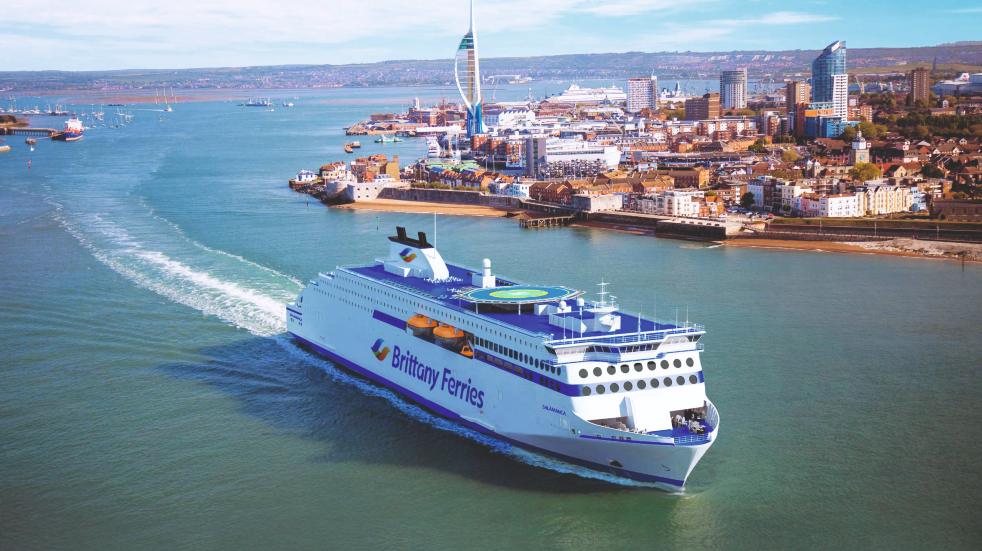
“At Brittany Ferries we come from the land, but we are committed to the sea,” says Jean-Marc Roué, president of Brittany Ferries – who is also a farmer himself. When not leading the company, he oversees the cultivation of vegetables on his 50-hectare estate, including pink Roscoff onions, a local delicacy with Protected Designation of Origin status. Alongside many of the company’s shareholders, Roué supplies Brittany Ferries with vegetables for its restaurants through Brittany’s Prince de Bretagne brand – so you could well be tucking into the president’s own produce on board.
It’s a scenario that Alexis Gourvennec, the company’s founding farmer, would undoubtedly have approved of. A true visionary and leader, it was he who inspired the Breton farmers to charter the Kerisnel, in his fervent mission to improve Brittany’s prospects. By 1972, he had already successfully petitioned the French government to establish new road links, telephone lines and education facilities in the region, and build a deep-water port in Roscoff – but this last victory had fallen flat. No existing cargo operator showed interest in operating from the harbour, leaving locally grown produce still cut off from potential new markets.
But Gourvennec was not a man to give up easily. He rallied his colleagues, calling on them to harness their collective power – and on 2 January 1973, the day after Britain joined the European Common Market, the farmers’ former tank carrier set sail for Plymouth. As the route’s popularity grew, more were developed, and Breton produce reached stalls and shops all over the UK. The following year, the company invested in a new ship, the Penn-Ar-Bed, which carried passengers and vehicles too – and Brittany Ferries was born.
From pink produce to green ships
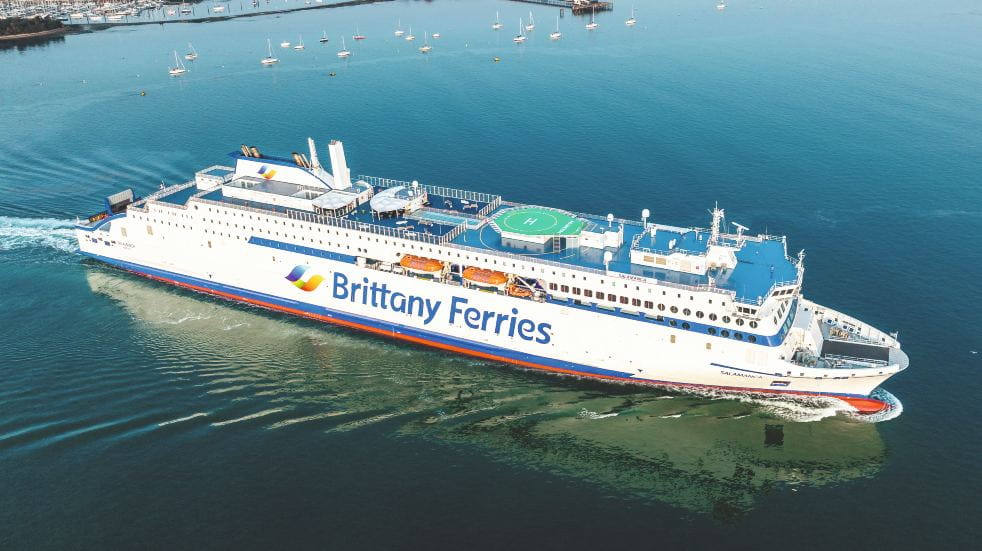
Perhaps you’ve heard of – you might even remember – the ‘Onion Johnnies’ who travelled door-to-door selling pink Roscoff onions on their bicycles? Dressed in berets and striped shirts, these striking salesmen often came from Brittany, and were among the first users of the new cross-Channel service – alongside a growing troop of traders and producers.
Before long, Gourvennec and his colleagues had unwittingly become successful ferry operators, a business inspired by equality, justice and community. To this day, their company remains committed to championing local producers and seafarers, a pioneering social enterprise at heart.
Now, after significant investment in new technology, the Brittany Ferries fleet is more sustainable than ever before, with new ships utilising both hybrid power and cleaner fuels (see panel, above right). By mixing freight and passenger traffic on board, it also maximises efficiency, while night crossings allow its ships to operate on reduced engine power.
Just as every farmer has a deep-seated respect for their land, Brittany Ferries strives to protect its seas, working closely with local projects and non-profits such as marine conservation organisation ORCA. In summer, the charity’s wildlife education officers are even on board Brittany Ferries’ services to and from Spain, helping passengers to spot dolphins and whales in the Bay of Biscay.
It’s this kind of ethos that fills journeys with joy and surprise while inspiring the next generation of freethinkers, too. So when you’re standing on deck with the wind in your hair, marvelling at the ocean’s beauty and power, remember the solid foundations beneath your feet. As Brittany Ferries looks to the future, it remains true to its roots, creating brighter horizons for everyone.
Save on sailings and holidays
Operating the only direct passenger ferry service from the UK to Spain, along with routes connecting the UK and Ireland with France, Brittany Ferries is a Boundless partner. Members receive a 5% discount on all crossings and a 7% saving on ferry-inclusive holidays. To find out more or to book a crossing, please visit brittanyferries.com/boundless.
To benefit from amazing offers, along with dozens of other deals on holidays, motoring services, experiences, shopping and more, join Boundless today. To find out how, visit our dedicated membership page.


